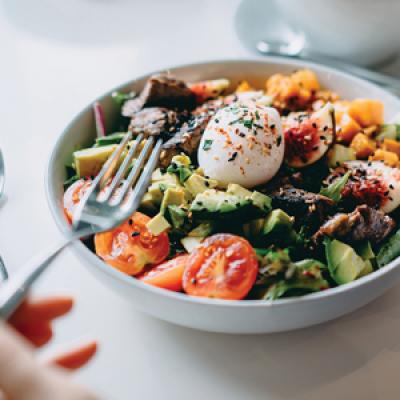Nelson Vergel
Founder, ExcelMale.com
J Strength Cond Res. 2017 Apr 7. doi: 10.1519/JSC.0000000000001935.
The Effects of Ketogenic Dieting on Body Composition, Strength, Power, and Hormonal Profiles in Resistance Training Males.
Wilson JM1, Lowery RP, Roberts MD, Sharp MH, Joy JM, Shields KA, Partl J, Volek JS, D'Agostino D.
Abstract
This study investigated the impact of an isocaloric and isonitrogenous ketogenic diet (KD) versus a traditional western diet (WD) on changes in body composition, performance, blood lipids, and hormonal profiles in resistance-trained athletes.
METHODS:
Twenty-five college aged men were divided into a KD or traditional WD from weeks 1-10, with a reintroduction of carbohydrates from weeks 10-11, while participating in a resistance-training program. Body composition, strength, power, and blood lipid profiles were determined at week 0, 10 and 11. A comprehensive metabolic panel and testosterone levels were also measured at weeks 0 and 11.

RESULTS:
Lean body mass (LBM) increased in both KD and WD groups (2.4% and 4.4%, p<0.01) at week 10. However, only the KD group showed an increase in LBM between weeks 10-11 (4.8%, p<0.0001). Finally, fat mass decreased in both the KD group (-2.2 kg ± 1.2 kg) and WD groups (- 1.5 ± 1.6 kg). Strength and power increased to the same extent in the WD and KD conditions from weeks 1-11. No changes in any serum lipid measures occurred from weeks 1-10, however a rapid reintroduction of carbohydrate from weeks 10-11 raised plasma TG levels in the KD group. Total testosterone increased significantly from Weeks 0-11 in the KD diet (118 ng/dl) as compared to the WD (-36 ng/dl) from pre to post while insulin did not change.
CONCLUSIONS:
The KD can be used in combination with resistance training to cause favorable changes in body composition, performance and hormonal profiles in resistance-trained males.
The Effects of Ketogenic Dieting on Body Composition, Strength, Power, and Hormonal Profiles in Resistance Training Males.
Wilson JM1, Lowery RP, Roberts MD, Sharp MH, Joy JM, Shields KA, Partl J, Volek JS, D'Agostino D.
Abstract
This study investigated the impact of an isocaloric and isonitrogenous ketogenic diet (KD) versus a traditional western diet (WD) on changes in body composition, performance, blood lipids, and hormonal profiles in resistance-trained athletes.
METHODS:
Twenty-five college aged men were divided into a KD or traditional WD from weeks 1-10, with a reintroduction of carbohydrates from weeks 10-11, while participating in a resistance-training program. Body composition, strength, power, and blood lipid profiles were determined at week 0, 10 and 11. A comprehensive metabolic panel and testosterone levels were also measured at weeks 0 and 11.
RESULTS:
Lean body mass (LBM) increased in both KD and WD groups (2.4% and 4.4%, p<0.01) at week 10. However, only the KD group showed an increase in LBM between weeks 10-11 (4.8%, p<0.0001). Finally, fat mass decreased in both the KD group (-2.2 kg ± 1.2 kg) and WD groups (- 1.5 ± 1.6 kg). Strength and power increased to the same extent in the WD and KD conditions from weeks 1-11. No changes in any serum lipid measures occurred from weeks 1-10, however a rapid reintroduction of carbohydrate from weeks 10-11 raised plasma TG levels in the KD group. Total testosterone increased significantly from Weeks 0-11 in the KD diet (118 ng/dl) as compared to the WD (-36 ng/dl) from pre to post while insulin did not change.
CONCLUSIONS:
The KD can be used in combination with resistance training to cause favorable changes in body composition, performance and hormonal profiles in resistance-trained males.



















